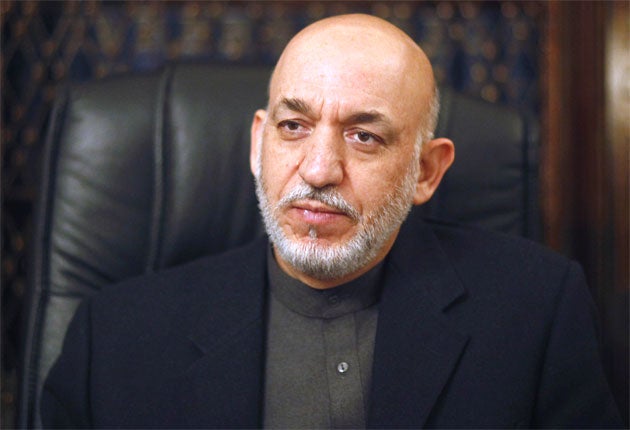It was less corrupt under the Taliban, say Afghans

Corruption in Afghanistan has become so entrenched that the population is being forced to pay out the equivalent of a quarter of the country's GDP in bribes, according to a UN report published yesterday.
Six out of 10 Afghans view corruption as a bigger problem than violence, the dossier, compiled by the UN Office of Drugs and Crime (UNODC), found. It showed that many illicit payments – totalling $2.5bn (£1.5bn) – were made to officials in order to obtain essential public services.
"Baksheesh culture" permeates every strata of society, with average bribes coming in at $160, compared to the average per capita income of $425 a year. Asked whether Afghan President Hamid Karzai should bear responsibility for this, UNODC head Antonio Maria Costa said: "We live in a society where those who are in charge bear responsibility unless they are blind."
He added: "According to Afghans who have taken part in this report, it is almost impossible to obtain a public service without greasing a palm; bribing authorities is part of everyday life. During the past 12 months, one Afghan out of two had to pay at least one kickback to a public official."
The report came the week before the London Conference on Afghanistan, aimed at formulating international strategy towards a country which is now causing major foreign policy headaches for the West.
Last year's elections, in which Mr Karzai was declared victor amid claims of widespread ballot stuffing, have led to questions in Europe and the US about soldiers' lives being lost to prop up a government branded as corrupt.
According to the report, policemen, judges, prosecutors and MPs were the most active in soliciting and receiving bribes. "Unfortunately, those who are supposed to be protecting the people from this sort of lawlessness are themselves seen as most guilty of violating the law," Mr Costa said.
The size of the "bribery economy" roughly corresponded to that of Afghanistan's opium trade, which was estimated to be worth $2.8bn in 2009. The "explosion" in opium production which started in 2005 corresponded with the spread of illegal payments to officials and parts of the economy being swamped by "black money", said the report.
Researchers found that many Afghans believed that NGOs were also involved in corruption and Mr Costa said he acknowledged that Nato forces had made payments to "shady characters" to receive information about the Taliban. He insisted, however, that paying money to Taliban fighters in an effort to get them to change sides was not a corrupt practice.
Join our commenting forum
Join thought-provoking conversations, follow other Independent readers and see their replies
Comments
Bookmark popover
Removed from bookmarks